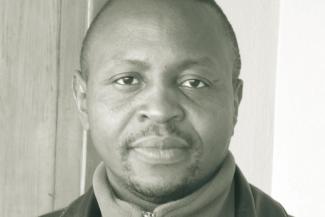Financial services
Health care in our hands

Kumbo is a town of over 125,000 people in the north west region of Cameroon. Its municipal Council is running a Mutual Health Organisation. So far, 25,000 members have joined. The micro-insurance scheme makes sure they can afford to pay hospital bills if they fall sick. It was set up in 2004 with support from the German donor agency GTZ, which has since become part of GIZ. Kumbo Mutual Health Organisation Kumbo MHO also relies on technical support from various other national and international institutions, but its financing depends on members’ premiums.
In order to become a member, a household pays a registration fee of 1,000 CFA Francs € 1,50. Member contributions are based on the size of the family. Initially families with one to four members pay 5,000 CFA franc per person annually, while those with five to eight members contribute 4,750 CFA franc per person. Those with more members are charged 4,500 CFA franc per person. From the second year of membership, the premium is reduced by 500 CFA francs.
Members play a role in management and oversight of the Kumbo MHO, making sure money is not squandered. Kumbo’s municipal Council plays a supervisory role. Moreover, it provides infrastructure and office equipment and takes care of overheads such as electricity and water.
Presently, three hospitals and eight health centres are involved in the scheme. They are spread all over Kumbo. According to MHO, the fund had covered health care costs for 26,000 health episodes, to the tune of over
300 million CFA francs as of October 2012.
A man in his thirties says that membership in Kumbo MHO means “health care in our hands”. His mother, who works for a mission hospital, registered him and his siblings. Staff at the Banso Baptist Hospital and the St. Elizabeth Catholic Hospital, Shisong, are automatically registered as members of the Kumbo MHO along with their families.
In order to benefit in cases of need, the members of Kumbo MHO have to pay their contributions diligently. Depending on the kind of services they get, the fund covers 50 % to 75 % of their hospital costs – provided that they have paid their premiums regularly. Kumbo MHO, moreover, does not fail those who are HIV/AIDS positive. They receive money for the periodic CD4 counts they need. This programme is subsidised by GIZ.
In a poverty stricken country such as Cameroon, many people die due to the inability to pay for medical expenses. Kumbo MHO is a model for improving matters. The brain behind the scheme is Mayor Njong Fonyuy Donatus who is also the regional chairperson of Cameroon’s strongest opposition party, the Social Democratic Front. Similar schemes have been started or are being introduced by several other municipal governments in Cameroon. This approach is improving lives for thousands of people, and it proves that local governments are becoming more important and more competent in the course of political decentralisation.







